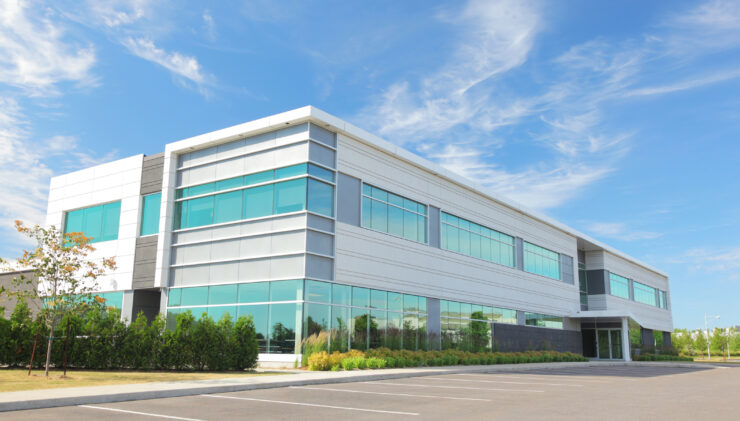 Auto Claims Trends: Frequency, Severity, Repair Costs, and Turnaround Times
Auto Claims Trends: Frequency, Severity, Repair Costs, and Turnaround TimesFor commercial property owners, maintaining low building vacancy rates is key to staying profitable. At times, though, buildings will be empty or partially empty for a variety of reasons. To understand the insurance coverage implications, it’s important to know the difference between vacant vs. unoccupied commercial property.
“Vacant” and “Unoccupied” Mean Different Things
To the average person, “vacant” and “unoccupied” may be synonymous, but there are important differences when it comes to insurance.
- An unoccupied property is one that does not currently hold people but does still have furniture and other business or personal belongings.
- A vacant property is one that does not currently hold people or belongings. A building may be considered vacant if it has just a small number of belongings left behind by previous tenants.
Based on these definitions, an office building may be unoccupied at night when all the workers have gone home, but it is not vacant. If the companies leasing the building decide not to renew their leases, the building may become vacant.
Furthermore, many commercial property insurance policies consider a building vacant if vacancy falls below a certain threshold – often 31% of total square footage. This means a building does not have to be 100% unused to be vacant. If you are leasing only 30% or less of your building, it may be vacant under the terms of your policy.
Vacant Buildings Have Unique Exposures
At this point, you may be wondering why insurers care so much about defining “vacancy.” The reason is because vacant buildings have increased exposures.
- Water damage may go unchecked. Whether it’s from a leaking roof or a broken pipe, water may damage the building and lead to mold. When no one’s around to see pools of water or smell mildew, water damage may go a long time before anyone does anything.
- Squatters may take over. Vacant buildings are attractive to squatters. Once they move in, they may damage the building – intentionally or unintentionally. For example, ABC 7 News says an apartment building was deemed unsafe after squatters trashed it. Similar damage may happen to other types of buildings, whether it’s an office building or a retail space.
- Vandals and thieves may cause damage. Thieves may try to steal anything they think they can sell, such as metal in AC units. Broken windows, graffiti, and other acts of vandalism are also a risk.
- Fire may destroy the building. Squatters may set fires unintentionally when cooking or using fire to stay warm. In addition, arson is also a concern for vacant buildings. Seattle has been dealing with a surge in fires at vacant buildings – rates increased from 77 in 2021 to 91 in 2022 and 130 in 2023.
These exposures mean insurers may limit or restrict coverage for vacant buildings. While a building is vacant, coverage for some claims may not be available.
Building Vacancies Are a Growing Problem
Commercial buildings may become vacant for a number of reasons. In some cases, buildings are temporarily empty for renovations. In other cases, tenants leave because they go out of business, relocate to another city or state, or find a different building that better meets their needs.
Recently, the rise of remote work has also decreased demand for office space, whereas the dominance of online shopping has decreased demand for physical rental space. According to CBRE, the U.S. office vacancy rate hit 18.2% – a 30-year high – in the second quarter of 2023.
For property owners, managers, and developers, high vacancy rates are a problem. The insurance implications may compound this problem. However, there are measures that reduce the risks.
- Consider other uses for vacant space. If vacancy rates are rising in your properties due to growth in remote work and online shopping, it may be time to look for new ways to attract tenants. For example, the Nasdaq says some empty retail stores and malls have pivoted to become fulfillment centers for online orders.
- Monitor and maintain vacant properties. If your property is vacant, good security will keep squatters, vandals, thieves, and arsonists away, whereas regular inspections and maintenance will prevent problems like leaks or pests.
- Talk to your insurer. Your insurance policy likely has a vacancy clause that will impact your coverage.
Whether your commercial property is vacant, unoccupied, or fully used, the right insurance coverage will help you manage your risks. Heffernan Insurance Brokers provides insurance designed for the real estate sector. Learn more.



